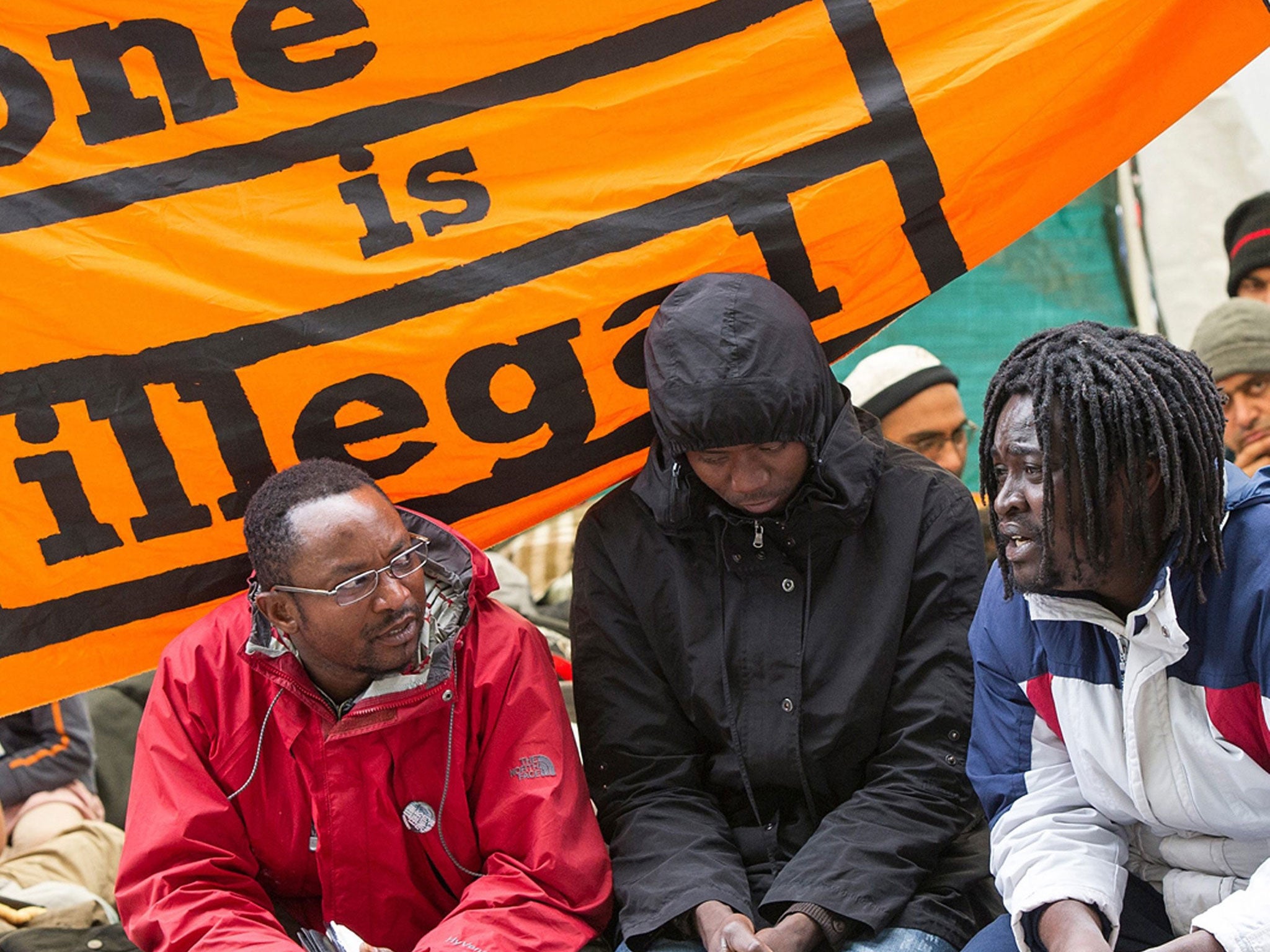
Riot police stormed the makeshift refugee camp on Munich’s cattle market – one of the poshest areas in the Bavarian capital – at 5am on Sunday.
They tore down rain covers made from polythene sheets and carried 44 badly dehydrated and weakened Asian and African asylum seekers to ambulances waiting close by. Thus ended a battle against Germany’s tough political asylum laws, which has been the top story in the Munich media for over a week.
What started as a sit-in became a hunger strike. The refugees from Nigeria, Iran and Afghanistan were demanding immediate political asylum. When their demands were not met they stopped eating.
When that failed to produce results, 44 decided to stop drinking as well.
Munich’s perplexed authorities decided to intervene when they realised they faced the real possibility that the protesters would die of dehydration in the middle of one of Europe’s wealthiest cities.
Before the police went in, two elderly yet high-ranking politicians were sent to negotiate. They told the hunger strikers that no politician in the country could afford to set a precedent by guaranteeing asylum on demand, or, for that matter, under duress. But the refugees said they would not give in and pledged to continue until death if necessary.
Not one of them has won the automatic right to asylum. Their only consolation is that for the time being at least, their hunger strike has put the plight of refugees back on the political agenda.
Join our commenting forum
Join thought-provoking conversations, follow other Independent readers and see their replies
0Comments